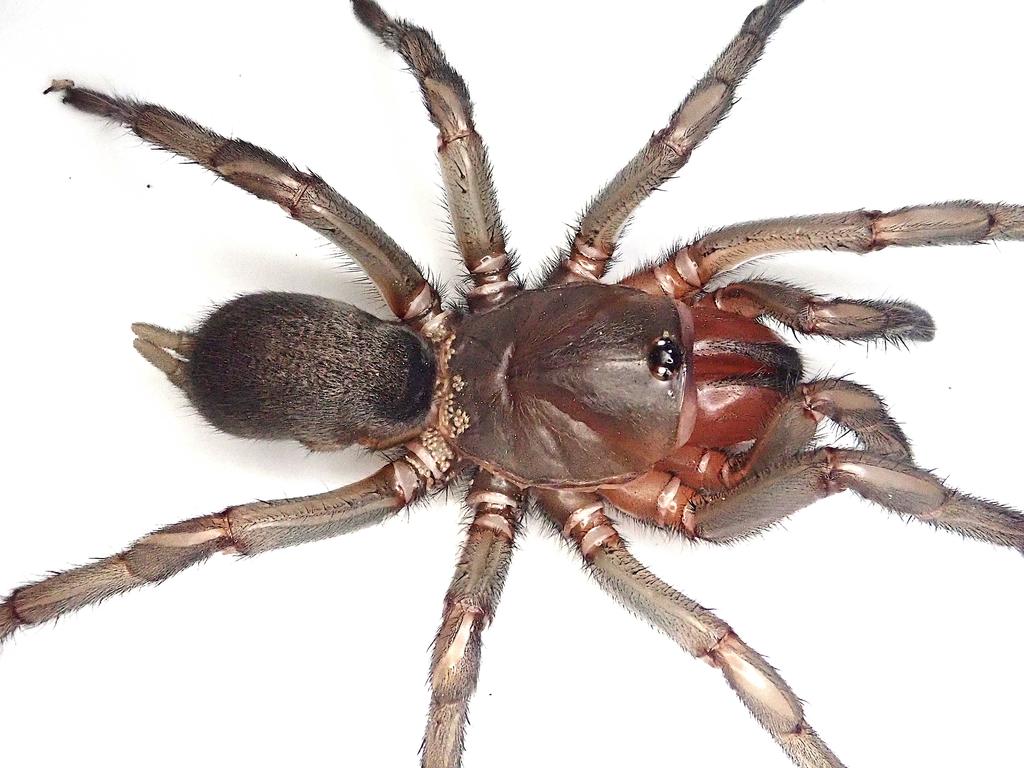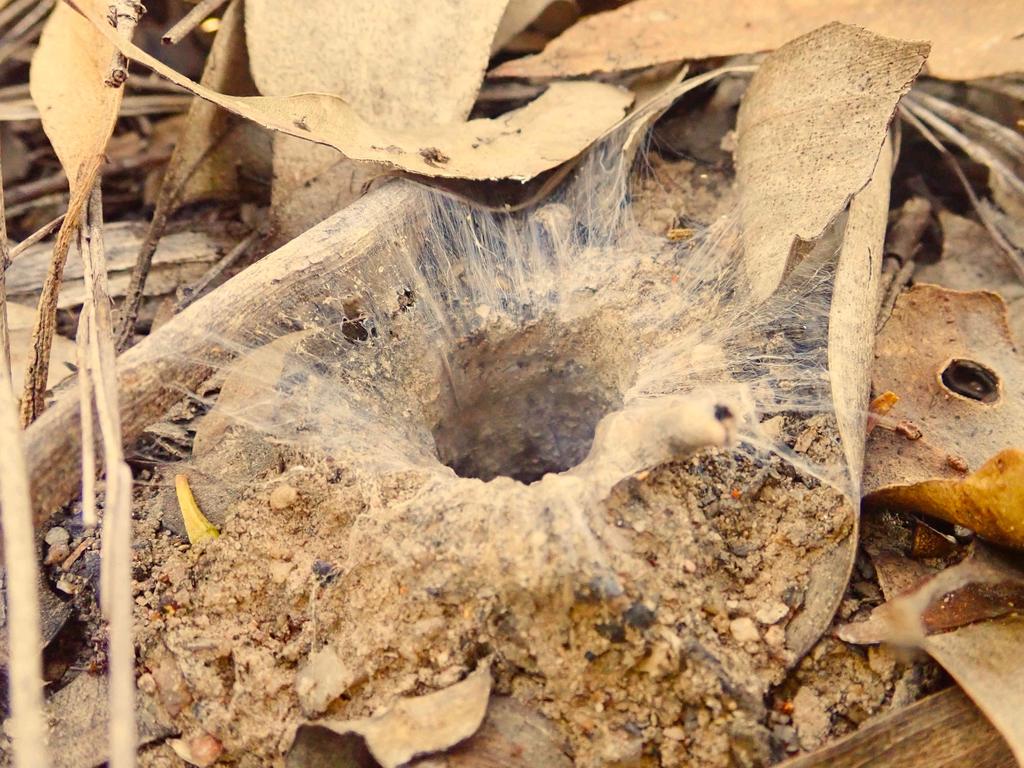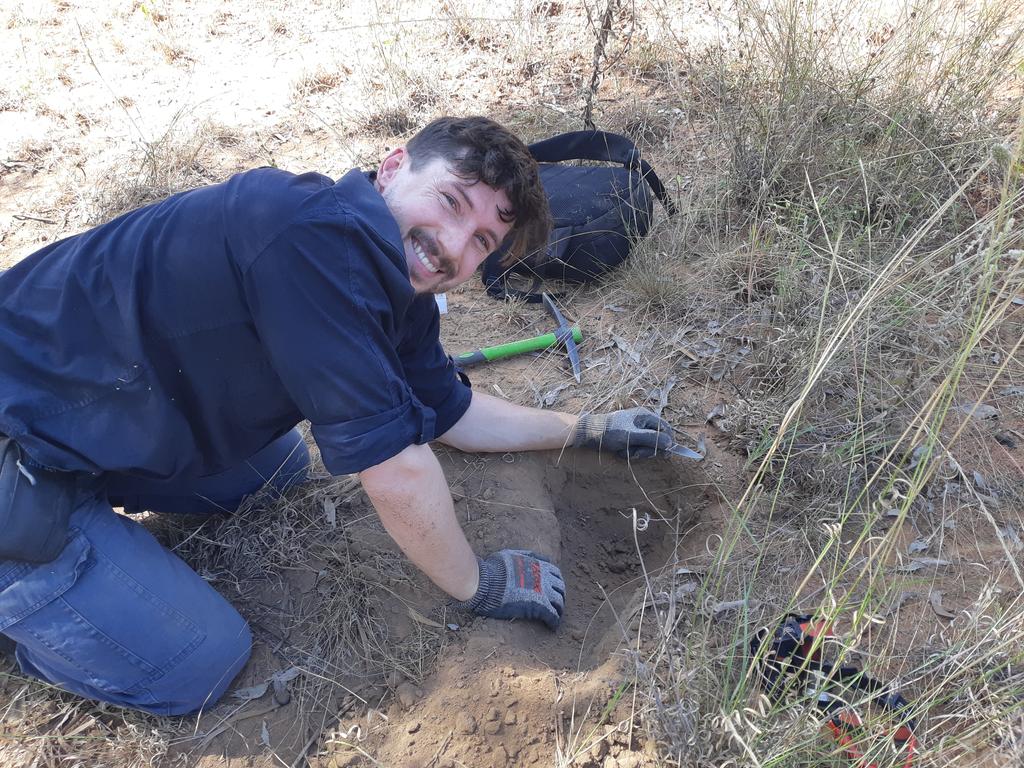55 new species of Australian wishbone spiders identified
In an arachnophobes nightmare, scientists have identified 55 new species of wishbone spiders.
National Breaking News
Don't miss out on the headlines from National Breaking News. Followed categories will be added to My News.
A massive two year project has led to scientists identifying 55 new species of Australian wishbone spiders.
Unlike your regular household spider, these species come from the same family as giant tarantulas and funnel-webs, as they dig burrows to catch their prey.
These burrows are lined with silk and shaped like a wishbone - hence “wishbone spiders”.
The wishbone burrows also resemble the letter Y, with one leg providing an entrance to the borrow while the other remains hidden to provide protection.

The research spanned across mainland Australia made possible by a collaboration from Western Australian Museum, Queensland Museum and Western Australia.
To provide some reassurance for arachnophobes, most of the spiders will not be found near people as the fieldwork took scientists to remote ecosystems.
The 55 new species of Aname are identified as part of a landmark research paper which explores the new additions.
Notably, A. eddieorum is named after the Eddie family who eun the ecological consulting company “Boobook” and A.lawrenceae which is named after Project Manager Melina Lawrence.

The new identifications makes wishbone spiders one of the most expansive and diverse groups of spiders throughout the nation.
Spider fanatics have more to look forward to as lead author Dr Jeremy Wilson based at The University of Western Australia said that despite the progress of the research, approximately 60 per cent of Aname species remain unidentified as they inhabit remote or arid regions of Australia.

“With this study, we’re not only revealing the immense diversity of wishbone spiders, but we’re also shedding light on the incredible biodiversity of Australia’s more remote ecosystems,” Dr Wilson said.
“We made some amazing observations about the burrowing behaviour of these secretive spiders on two major field trips in Queensland. Then, in the lab we were able to identify differences in their physical appearance and even in their DNA. We studied all of these lines of evidence to identify which species were new to science”.
“This work is just another contribution towards mapping the amazing richness of Australia’s arachnid fauna.”
Originally published as 55 new species of Australian wishbone spiders identified








